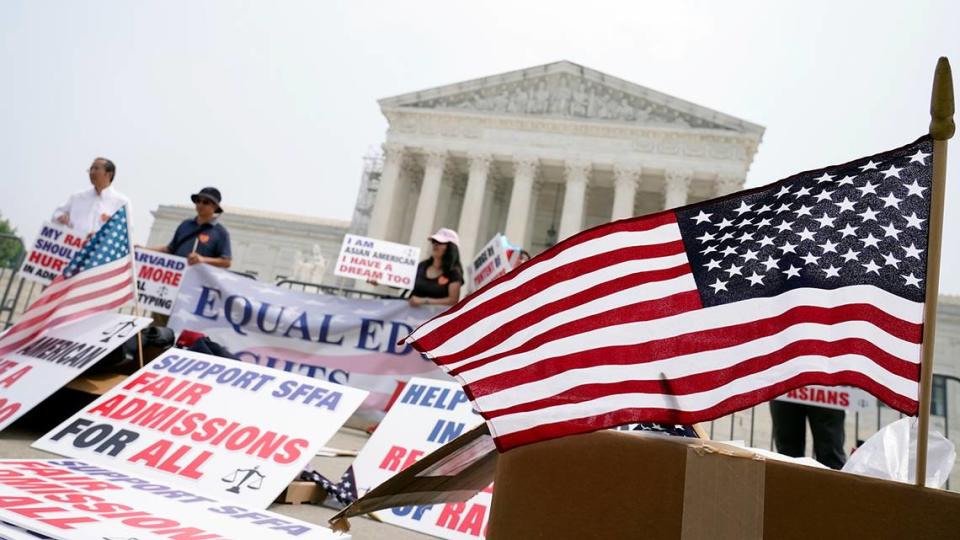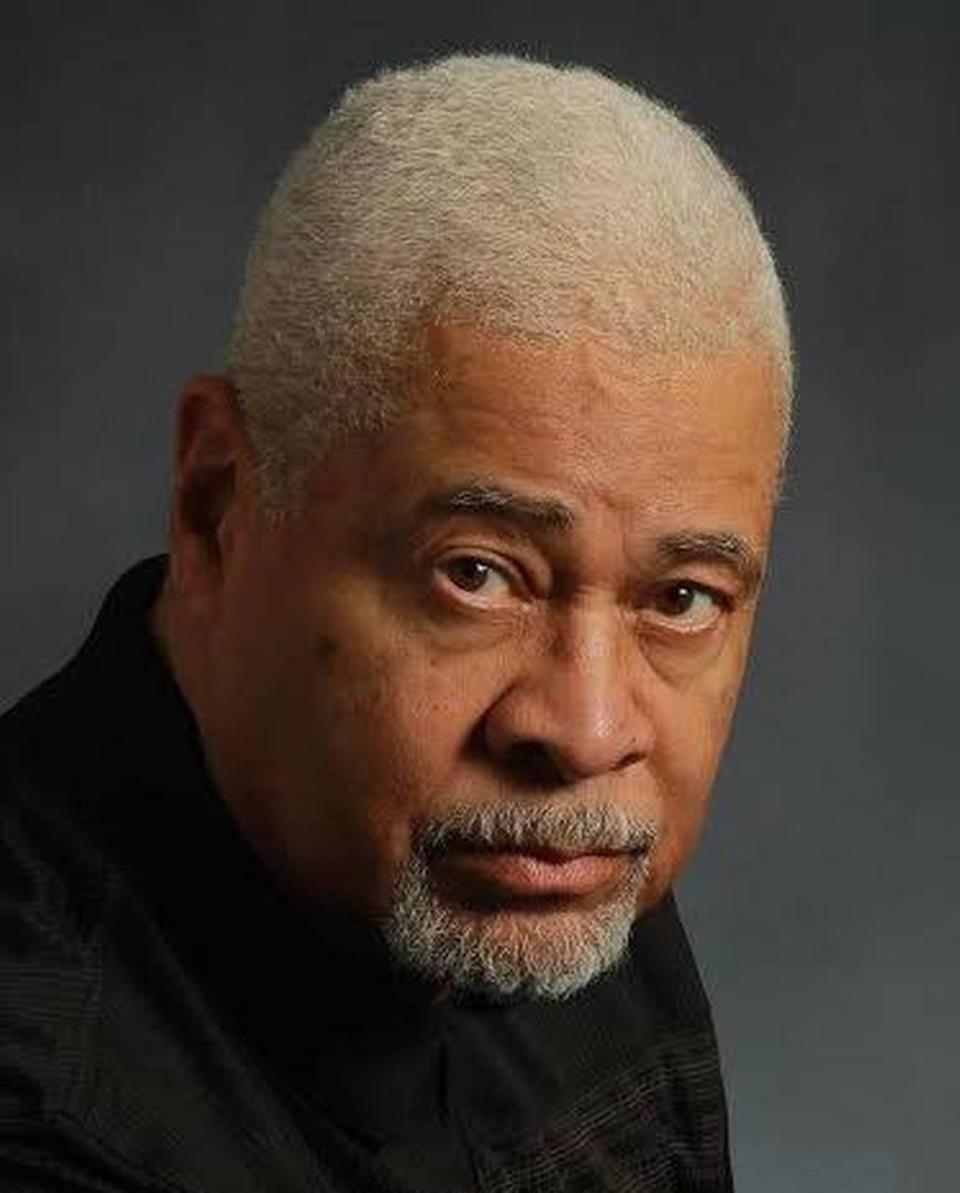Under the baobab: Affirmative action ruling hurts those chasing American dream
- Oops!Something went wrong.Please try again later.
- Oops!Something went wrong.Please try again later.
“… today, the majority pulls the ripcord and announces ‘colorblindness for all’ by legal fiat. But deeming race irrelevant in law does not make it so in life.” —Associate Justice of the Supreme Court of the United States Ketanji Brown Jackson
The U.S. Supreme Court in a 6-3 decision found that admissions programs of Harvard and the University of North Carolina violate the Equal Protection Clause of the 14th Amendment, effectively declaring their affirmative action programs unconstitutional. Chief Justice John Roberts wrote, “Many universities ... have concluded, wrongly, that the touchstone of an individual’s identity is not challenges bested, skills built, or lessons learned but the color of their skin. Our constitutional history does not tolerate that choice.”
I strongly disagree and I’ve got skin in the game.
The 14th Amendment guaranteed equal protection to all. It was enacted to empower Black Americans, most of whom had been recently enslaved and were at the time being oppressed by doctrines and programs based on white supremacy. One hundred years later, affirmative action was a strategy employed to promote equality and democracy. The majority of today’s Supreme Court maintains that racism has been eradicated, but as Associate Justice Sonia Sotomayor states in her dissenting opinion: “Entrenched racial inequality remains a reality today. That is true for society writ large and, more specifically, for Harvard and the University of North Carolina (UNC), two institutions with a long history of racial exclusion. Ignoring race will not equalize a society that is racially unequal. ... Equality requires acknowledgment of inequality. “
I am a proud beneficiary of affirmative action programs, which came about through struggle and sacrifice of Black and white civil rights activists. Hundreds of named and millions of unnamed heroes put their lives and livelihoods on the line to help actuate the American dream of freedom and equality.
In the 1950s I was a poor working class kid living with my family in Chicago. My mother and father had been part of the great migration. No one in their families had ever gone to college. In fact, neither of them had finished high school. My dad was a career soldier in what started out as a segregated army. My mom was a factory worker. Her mother was a domestic servant. We all lived in the form of American apartheid known as Jim Crow segregation. Racial discrimination was the custom and the law.
The 1954 Brown decision and the civil rights movement opened the door to equal opportunity. I was able to go to a community college, then to a four-year state college, where I graduated magna cum laude. I wanted to go to law school. My LSATs were in the top ten percentile so I applied to Harvard, Yale, Howard and a few other “elite” schools. I was accepted at Yale Law School in part because of its affirmative action program. Roughly 10% of the incoming classes were students of color, including my classmate Associate Justice Sotomayor and Associate Justice Clarence Thomas.
At Yale our Black Law Students Union filed an amicus brief in the 1977 Supreme Court case Bakke v. Calif. In a mixed decision, that Court, which included Thurgood Marshall, the first African American to sit on the Supreme Court, held that racial quotas were unconstitutional but the use of race as a criterion in admissions decisions in higher education was constitutionally permissible. The 2023 Court effectively overturned Bakke.
In a 1982 citation Governor Hugh Carey of New York wrote: “Mr. Dumas was the Chief Trainor in law and minority history …his awe-inspiring lectures were an important contribution in the successful implementation of New York’s comprehensive affirmative action training program. ... If Mr. Dumas succeeds more than most in capturing the tempo of our times perhaps it is because more than most he has steeped himself so deeply in the mainstream concepts of the American dream.”
Amen.
Charles Dumas is a lifetime political activist, a professor emeritus from Penn State, and was the Democratic Party’s nominee for U.S. Congress in 2012. He was the 2022 Lion’s Paw Awardee and Living Legend honoree of the National Black Theatre Festival. He lives with his partner and wife of 50 years in State College.


